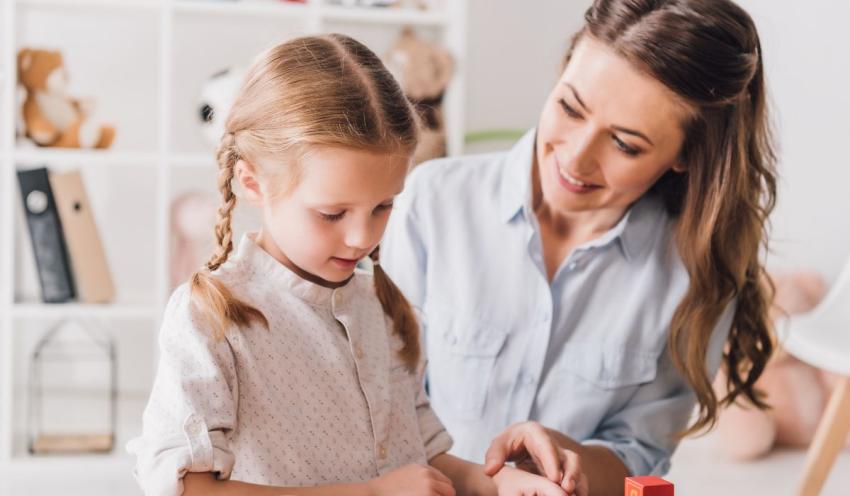
Applied Behavior Analysis (ABA) therapy has been one of the most effective, evidence-based interventions for supporting children with developmental and behavioral challenges for decades. While ABA can be delivered in nearly any environment—home, school, telehealth—center-based ABA therapy offers advantages to enable greatly increased skill development, independence, and socialization.
Under supervision and supportive conditions, kids enjoy the benefits of specialized resources, one-on-one interventions, and peer learning. The synthesis yields a successful launching pad for change.
What Is Center-Based ABA Therapy?
Center-based ABA therapy takes place within a specialized clinical building constructed exclusively to provide behavioral interventions. These centers possess equipment, supplies, and specialized personnel to administer individualized therapy programs tailored to each child's needs.
Compared to home sessions, where the environment can change, a center provides a predictable, distraction-free environment that invites concentration, consistency, and skill mastery. This structure can be beneficial for children who may thrive on routine predictability and clear expectations.
Core Benefits of a Center-Based Setting
1. Access to a Structured Learning Environment
Centers are carefully designed to allow learning in development areas—communication, daily living, academic preparation, and social interaction. The daily routine schedule gives children a sense of security, and clearly defined activities invite participation.
2. Opportunities for Peer Interaction
Social development is also a primary interest of center-based treatment. The children work together with peers, and that offers opportunities for turn-taking, sharing, group problem-solving, and friendship-building in a natural way. The real-life interactions enable them to use learned skills outside of therapy.
3. Access to Specialized Resources
From adaptive technology to sensory-friendly play spaces, centers have equipment specifically designed to help every child develop. These resources have the potential to increase skill acquisition and make learning fun and interactive.
4. Multidisciplinary, Team-Based Approach
Center programs generally employ a staff of Board Certified Behavior Analysts (BCBAs), Registered Behavior Technicians (RBTs), and in some cases, speech or occupational therapists. Such a multidisciplinary staff ensures that all facets of a child's development are addressed.
5. Consistency Across Sessions
Given that sessions occur in a controlled setting, consistency in teaching style, reinforcement, and observing progress becomes easier. Such consistency can lead to faster skill acquisition.
Skills Acquired in Center-Based ABA Therapy
Though ABA therapy goals are individualized for a child, some areas of skills that are covered in a center are:
Communication Skills: Enhancing verbal and non-verbal communication through speech, gestures, or augmentative communication systems.
Social Skills: Acquisition of proper interaction with people, compliance with group instruction, and cooperative play.
Daily Living Skills: Becoming independent in dressing, eating, personal care, and classroom management of personal items.
Academic Readiness: Building foundational skills of attention, following direction, and early numeracy or literacy theory.
Emotional Regulation: Recognizing and managing emotion in a positive way.
A Day in the Life at a Center-Based ABA Program
Although schedules vary, a day might feel like this:
- Morning Circle: Whole-class activities with participation that encourages interaction, singing, and engagement.
- Individualized Learning Sessions: One-on-one work with an RBT on personalized goals.
- Snack or Lunch Break: Practice of self-feeding, table manners, and conversation skills.
- Group Play: Structured activities that encourage cooperation and problem-solving.
- Skill Generalization: Recalling the learned skills in different environments of the center.
This structured yet responsive behavior is intended to provide balance between directed instruction and incidental learning experiences.
Why Some Families Prefer Center-Based Therapy Over In-Home
While home ABA therapy has the benefit of home surroundings, families prefer to use center-based programs due to the following advantages:
- More Access to Peers: Socialization is part of the day built in since there is a focused learning area, the center is distraction-free compared to homes with siblings, pets, or electronics.
- Variety of Materials to Learn From: Therapy centers have more diverse materials.
- Professional Collaboration: Easier coordination between multiple therapists and experts.
That being said, the majority of families want a hybrid model—combining in-home and center-based sessions for the best of both worlds.
Parental Involvement in a Center-Based Program
Parents play an important role in carrying over therapy goals beyond the center. Most programs offer:
- Parent Training Sessions: To teach in methods for enhancing skill use in the home and community.
- Progress Meetings: Regular checking of goals, achievement, and areas to address next.
- Observation Opportunities: Parents are permitted to attend sessions in order to learn strategies directly from the therapists.
The more engaged parents are, the more they will prompt kids to apply skills outside of the center.
Getting the Right Center-Based ABA Program
In choosing a center, consider:
- Qualifications: Ensure the program is overseen by qualified professionals.
- Staff-to-Child Ratio: Small group size can give more personalized attention.
- Facilities: Look for clean, safe, and interesting settings.
- Communication: The center will keep you informed and involved in your child's progress.
- Flexibility: The program needs to adapt to your child's evolving needs.
Measuring Success in a Center-Based Program
Progress is tracked through data collection, regular checking, and collaborative goal-setting. Success can be:
- Greater independence in activities of daily living
- Improved communication skills
- Improved peer relationships
- Reduced difficult behaviors
While every child's journey is unique, consistent participation in center-based ABA therapy can result in long-term skill and self-worth advancements.
If you are looking for ABA autism therapy in Maryland, we provide personalized, evidence-based services designed to help children build essential skills, improve communication, and foster independence in a supportive environment.
Conclusion
Center-based ABA therapy offers a structured, support-rich, and socially oriented environment for children to acquire the life skills of success. Intersecting individualized instruction with social interaction, this modality is able to promote advancement and establish a solid foundation for children to excel in school and beyond.
For parents who need a combination of professional direction, social connection, and consistent encouragement, a center program is ideal. Under the care of highly trained therapists, personalized strategies, and a loving setting, kids can truly flourish—laying the groundwork for an independent and more rewarding life.




